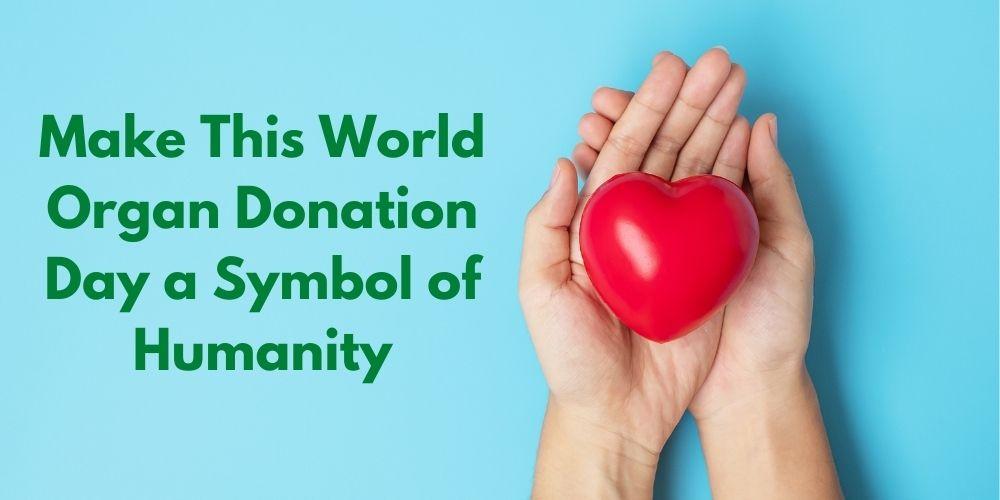What is World Organ Donation Day?
Globally, every year World Organ Donation Day is observed on August 13. People celebrate this day to spread awareness; about the importance of organ donation that motivates people to donate organs after death.
Donating an organ is the noblest cause as one can gift and save the life of someone by giving a few years of life to the other. The day provides an opportunity for all to come ahead and pledge to donate their precious organs.
What is an Organ Donation?
Organ donation is a process done through surgery where the doctors remove and transfer an organ or tissue from the donor’s to the recipient’s body.
Transplantation is necessary if the recipient’s organ has failed or has been damaged due to disease or injury.
Types of organ donations!
There are two types of organ donation – living donation and deceased or Cadaver donation.
Living Donation: A living donation takes place when a person donates an organ to another person. The living donor can be a family member or who is related to the recipient.
Deceased or Cadaver Donation: In this case, a deceased person has expressed a wish to donate their organs. It is executed using a person who is declared dead due to the ultimate loss of respiration and consciousness.
What is the organ donation report in India?
According to the report, the number of organ donations in India is increasing every year. Yet, the current organ donation rate is still low in India – 0.86 per million compared to other countries in the world.
Around the world, thousands of people die every year in India waiting for organ transplants. Due to organ failure, they require organs, which can change their lives. They can live for many years if they get organs from healthy people.
Who Can Be An Organ Donor?
All people can consider themselves organ donors irrespective of age, caste, religion, community, etc. New-born and even senior citizens are potential organ donors as the health of the organ is more vital than age.
Even a person with an illness would be able to donate organs while the doctors would examine the organs and determine whether they are suitable for donation.
As per the National Health Portal, there are few facts about organ donation that everyone must know:
- There is no specific age for organ donation but it is based on strict medical criteria.
- After organ failure, vital organs can only be donated in the case of brain death.
- If someone younger than 18 can donate an organ with the written agreement of parents or guardians.
- Few conditions, like HIV, organs spreading cancer, or severe infections, would exclude organ donation.
What organ can be donated?
A person can donate various organs like kidney, lungs, heart, eye, liver, pancreas, cornea, small intestine, skin tissues, bone tissues, heart valves, and veins.
Why is the organ donation rate low in India?
Due to the lack of awareness, incorrect information, and various myths, citizens of India are scared of signing up for organ donations. People should know that a living donor can survive on one kidney, and the liver grows back to its usual size.
Most organs are collected from deceased donors, as they can save up to eight lives. Despite India being the second-most populous country in the world, the rate of organ donation per million populations is 0.26.
What does the government of India say?
Every organ donation is a life donation for someone in need. The Ministry of Health and Family Welfare called on the people to come forward and go one step further towards organ donation to help in the noble cause of saving precious lives.



